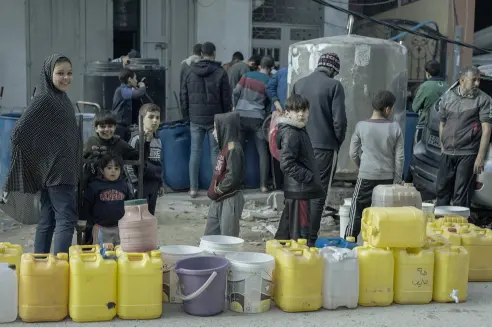October 15, 2025
The UK will provide £20 million ($27 million) to deliver water, sanitation, and hygiene services in Gaza, through organizations like UNICEF, WFP and the Norwegian Refugee Council. This comes amid recent ceasefire developments and plans for a summit for Gaza’s reconstruction.

LONDON / CAIRO, October 12, 2025 — The United Kingdom has announced a £20 million (approximately $27 million) aid package for Gaza, earmarked for essential water, sanitation, and hygiene (WASH) services. Prime Minister Keir Starmer made the announcement upon his arrival in Egypt for a summit focused on resolving the ongoing conflict in Gaza. Reuters+1
The funds will be channeled through trusted international aid organizations, including UNICEF, the World Food Programme (WFP), and the Norwegian Refugee Council (NRC). The goal is to help those facing famine, malnutrition, and disease, as access to clean water and sanitation remains severely disrupted in many areas. Reuters
The pledge comes in the wake of a ceasefire between Israel and Hamas that held for three consecutive days, which has allowed for a modest expansion of humanitarian operations. Reuters
The UK’s commitment is part of a broader aid effort: this financial year, the UK has already allocated £74 million in humanitarian aid to Palestine, including food, shelter, water and hygiene services. GOV.UK+1
Alongside this funding, the UK is hosting a three-day international summit on Gaza’s reconstruction. The summit will include governments, private sector actors, and development finance institutions such as the World Bank and EBRD. Reuters+1
The funding targets:
Provision of clean water to communities with broken or destroyed infrastructure
Sanitation and hygiene systems to prevent disease outbreaks
Support for malnourished populations, particularly children and vulnerable groups
Collaboration with NGOs that have access on the ground and established delivery channels in conflict zones
This aid initiative bolsters the UK’s humanitarian profile as global leaders convene to address the Gaza crisis.
The use of established agencies aims to ensure transparency and effectiveness in distribution.
The UK’s involvement signals both moral and diplomatic engagement in the conflict and its resolution pathway.
Delivering aid safely in a conflict environment remains difficult due to damaged infrastructure, restricted access, security concerns, and logistical bottlenecks.
Ensuring that the funds are used for civilian, humanitarian purposes and not diverted remains a concern.
The scale of the humanitarian need far exceeds current funding, requiring coordination and further pledges from international actors.
The summit in Egypt is expected to progress reconstruction planning and international coordination, aiming to scale up relief operations. GOV.UK+1
Monitoring and follow-up will likely assess how quickly the welfare needs are addressed, especially in water, sanitation, disease prevention and nutrition.
Future UK aid pledges may continue, depending on conditions such as ceasefire stability, access, and international cooperation.